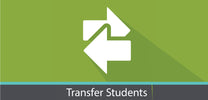
At the University of Nebraska, Kearney, faculty and staff are engaged in innovative practices that are making a difference in student success outcomes. UNK’s Thompson Scholars Learning Community (TSLC) Peer Mentoring Model focuses on effective strategies for supporting students from at-promise backgrounds—those who are from low-income families, racialized communities, and first-generation college students.
Understanding The TSLC Peer Mentoring Model
The TSLC Peer Mentoring Model is designed to facilitate the success of students from at-promise backgrounds during their transition to college. This model has been extensively studied, identifying key practices that contribute to its effectiveness. The TSLC model employs a holistic approach, addressing academic, social, and personal needs of students through structured peer mentoring.
Key Research Findings
Impact on Student Success: Research shows that the TSLC Peer Mentoring Program positively influences students' sense of belonging, confidence in their academic capabilities, and career paths. The program fosters a supportive community where students feel they matter, which is crucial for their retention and success.
Three core effective practices emerged as particularly impactful:
- Proactive Outreach: Mentors engage with mentees early, offering guidance on navigating challenges and exploring opportunities.
- Validating and Affirming: Mentors focus on affirming students' strengths and potential, promoting a growth mindset.
- Holistic Support: The program addresses academic, social, and personal aspects of students' lives, ensuring comprehensive support.
Implementing The TSLC Model
The process begins with a mentor information session, followed by a detailed application and interview process. Selected mentors are typically former mentees who have demonstrated strong academic and leadership qualities. Mentors undergo a six-day training program covering essential topics such as ethics, confidentiality, and cultural competency. This training prepares them to provide holistic support to their mentees. Additionally, mentors attend the first-year orientation with their mentees, helping them navigate the initial challenges of college life.
Mentors receive continuous support through weekly meetings with their supervisor and monthly group sessions. These meetings provide opportunities for mentors to discuss their experiences, share strategies, and receive feedback. This support system ensures mentors are well-equipped to assist their mentees effectively.
Practical Recommendations For Peer Mentoring Programs
Based on the success of the TSLC Peer Mentoring Model, here are some practical recommendations for institutions looking to implement or enhance their peer mentoring programs:
1. Early and Proactive Engagement
Engage students early, ideally before they arrive on campus. Proactive outreach helps identify potential challenges and opportunities for support.
2. Comprehensive Training for Mentors
Provide thorough training that covers academic support, emotional intelligence, and cultural competency. Ensure mentors understand the importance of validating and affirming their mentees' experiences.
3. Holistic Support Approach
Address multiple aspects of students' lives—academic, social, and personal. Encourage mentors to build strong, trust-based relationships with their mentees.
4. Structured Supervision and Feedback
Implement a robust system for supervising and supporting mentors. Regular meetings and feedback sessions help mentors grow and improve their support strategies.
5. Emphasize Inclusivity and Representation
Ensure that mentors come from diverse backgrounds and can relate to the experiences of their mentees. Representation matters in building a supportive and inclusive community.
The TSLC Peer Mentoring Model demonstrates that thoughtful, well-structured peer mentoring programs can significantly impact students' success, particularly those from at-promise backgrounds. By addressing students' holistic needs and fostering a supportive community, institutions can enhance student retention, graduation rates, and overall satisfaction.
Want to learn more? Check out UNK’s recent presentation on their Thompson Scholars Learning Community Peer Mentor Program. Innovative Educators provides training resources for TSLC mentors through its student success workshops content, StudentLingo.
Like To Learn More? Schedule A Demo
For nearly 20 years, Innovative Educators has assisted college leaders to build foundations of success for their students. Institutions have seen student engagement and retention increase as a result of utilizing Go2Orientation, OnlineLingo and StudentLingo to onboard new students. Grounded in best practices for online learning, Innovative Educators student support tools are engaging, interactive, and community-building. Go2Orientation, OnlineLingo and StudentLingo together create a powerful online resource center providing support to students throughout their academic journey.
Stay Updated!
Don't miss out on the latest insights and updates in student success strategies. Subscribe to our newsletter for regular updates, and follow us on LinkedIn, YouTube, Instagram, and Facebook to join our growing community of education innovators.
By Meg Foster, Online Learning & Design Specialist - Consultant & Wendy Archer, Web Content Coordinator
August 7, 2024



Comments 0